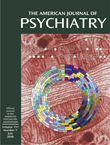The Paradox of Sleep: The Story of Dreaming
It is on but rare occasions that we have an opportunity to view the birth and development of an entire field of scientific inquiry through the retiring eyes of one of its pioneers. This book represents such an occasion. The scientific inquiry of the physiological and behavioral underpinnings of paradoxical sleep (REM or dreaming sleep) dates its onset to the early period of scientific discovery of the author of this book, Michel Jouvet, currently an Emeritus Professor of Experimental Medicine at the University of Lyon, France. Perhaps most famous for his brainstem transection experiments that localized the generators of paradoxical sleep in the early 1960s, Dr. Jouvet and his students were tireless over the subsequent four decades of study in their search for the physiological and behavioral significance of this mysterious state of being. These quests ranged from electrophysiological recordings in brainstem neurons of cats, to a review of the Freudian theories of dreaming, and to the study of eye movements during sleep in the Bassaris—an indigenous tribe who live in the bush between Senegal and Guinea.
In this book, which is translated from the French, Dr. Jouvet describes, in astonishingly candid fashion, his view of the evolution of scientific inquiry into sleep/wake function and presents his latest thoughts regarding the physiological mechanisms and behavioral significance of paradoxical sleep. This includes his controversial hypothesis that paradoxical sleep may serve the function of preserving the genetic material underlying individuality, including instinctual behavior. He reveals how the methodology available to sleep neuroscientists shaped what we know about the physiology of paradoxical sleep and questions whether developments in the field, including novel hypotheses about the function of paradoxical sleep, have been limited by the looking glass through which sleep processes are observed. He ponders new directions for the next generation of scientists interested in discovering the mysteries of paradoxical sleep.
The reflective nature of this work is captured by the titles to individual chapters such as “In the Labyrinth of Sleep,” “Oneiric Behavior,” “Sleep, the Other Side of the Spirit,” “The Functions of Dreaming,” and “Forty Years of Dream Research, or The Collapse of Paradigms.” Calling this book a “must read” does not begin to do justice to the significance of this work for anyone who has contemplated the mysterious links between sleep and human behavior.



